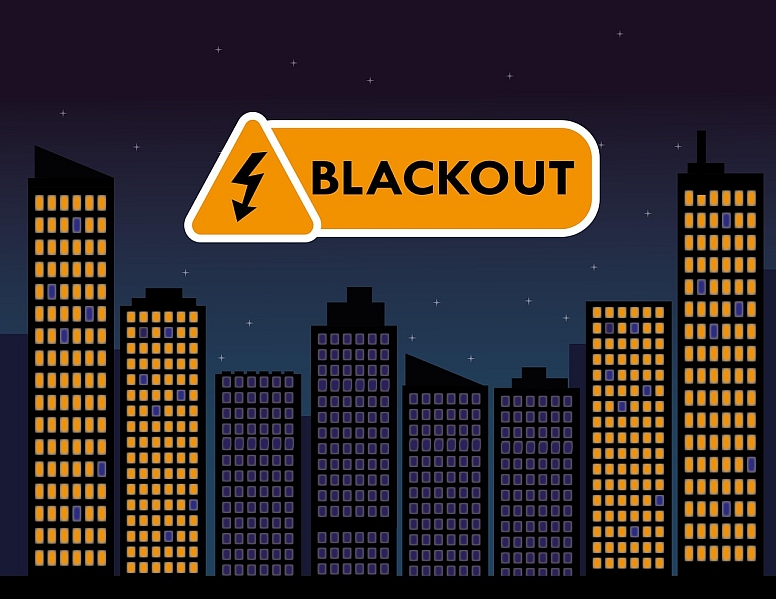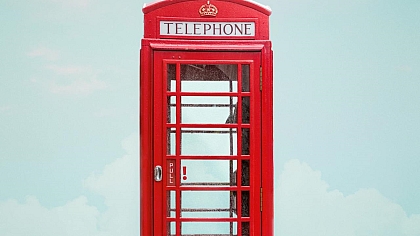
10 Ways to Prepare for Unexpected Power Failures
You never know when a power outage might strike. You want to keep your home secure, preserve perishable items, and stay connected. Let's jump right into the essential steps you need.
You'll discover ways to build a practical emergency kit, handle electronics carefully, and stay safe using alternate sources. It's all about being ready for anything without complicated procedures or unnecessary stress.
If a blackout leaves you in the dark, an emergency electrician can restore power. Let's get started and help you feel confident about surviving electricity lapses that come your way.
Prepare Emergency Lighting Solutions
Storms and infrastructure failures can leave you in the dark without warning. Being ready ensures that everyone can efficiently navigate halls and exits with minimal fuss.
- Install reliable fixtures. High-quality emergency lights and exit signs are essential for clear evacuation routes in prolonged outages, ensuring everyone sees important pathways and stays safe.
- Review safety regulations. Check updated standards from OSHA or NFPA, verifying your emergency lighting meets specific guidelines for brightness, battery life, and coverage across main corridors.
- Consider extended coverage. A minimum of 1.5 hours is standard, but having lighting for longer ensures safer navigation if storms linger or repairs face delays.
- Upgrade with reputable stores. Purchase lighting units from trusted suppliers that can offer waterproof or chemical-resistant solutions, especially if your business handles potentially hazardous materials.
Knowing how to equip your location protects customers and staff. For more insights on lighting requirements, review this helpful resource online and stay informed.
Maintain a Charged Power Bank
Consistent device power can keep you aware of critical updates. Having a dedicated bank prevents frustration when local grids fail, ensuring constant communication and entertainment.
Select Sufficient Capacity
Look for power banks that supply multiple recharges. If your household has several devices, buying a higher capacity model can keep everything functioning reliably longer.
Test Regularly
Regular practice helps you confirm your bank charges properly. Periodically top it off to verify performance, especially if stored for extended periods without active use.
Store Extra Cables
It's easy to forget to charge cords until the batteries are low. Keep cables neatly wrapped and ready alongside your power bank for quick and efficient access.
Unplug Appliances Immediately
Sudden outages risk unexpected electrical surges. It's wise to remove devices from power sources before service resumes, protecting sensitive electronics and preventing avoidable repair costs.
- Disconnect high-end gadgets. Remove gaming consoles, smart TVs, and computers from outlets once power goes out to safeguard delicate circuits from unpredictable voltage surges.
- Prevent total overload. Appliances like refrigerators, air conditioners, or heaters draw significant power and can stress breakers if they simultaneously surge when electricity returns.
- Inspect cords and outlets. Checking for melted insulation or scorch marks before reconnecting helps you avoid bigger electrical fires or potential shock hazards.
- Consider surge protectors. Installing advanced strips or wall devices reduces dangerous spikes while adding an extra layer of defense against damage from power fluctuations.
Many modern systems handle disruptions well, but acting quickly still provides peace of mind. Checking for hazards rewards you with simpler recovery after power returns.
Ensure Refrigerator Stays Closed
Keeping perishables fresh extends well beyond flipping a switch. Reducing how often you open fridge doors prolongs safe food temperatures when electricity completely unexpectedly disappears.
Focus on Quick Access
Grab items you need at once, then shut the door promptly. This helps preserve essential coolness and significantly reduces notable spoilage risks across stored groceries.
Observe the Four-Hour Window
The USDA recommends limiting outages to four hours before disposing of perishable items. Play it safe by discarding suspicious harmful leftovers to prevent foodborne illnesses.
Use a Thermometer
A battery-powered thermometer offers peace of mind. Knowledge of actual interior readings helps you decide whether frozen and refrigerated goods remain edible and entirely safe.
Stock Essential Food Supplies
Relying on perishable groceries leaves you at risk when electricity stops. Keeping shelf-stable items ensures comfort and nutrition until utilities stabilize and stores reopen fully.
- Aim for variety. Stock canned beans, soups, vegetables, and dried fruits to keep meals interesting and balanced without relying on oven or microwave use.
- Choose easy snacks. Quick options like nuts, granola bars, and crackers want no cooking time, helping you stay nourished between more substantial meals.
- Include bottled water. Events may disrupt tap lines, so having sealed water containers ensures reliable hydration and peace of mind for everyone.
- Rotate inventory frequently. By monitoring dates and replenishing supplies, you keep your stash fresh and reduce waste from expired or spoiled products.
A steady backup of no-cook foods helps you eat consistently. By purchasing gradually and storing wisely, you build practical security for unexpected outages and disruptions.
Safely Operate Your Generator
Generators offer backup power for crucial tasks. Using them properly prevents serious hazards like carbon monoxide poisoning, fires, and massive equipment damage during widespread blackouts.
Keep It Outdoors
Always place generators outside, away from windows or vents. Toxic fumes build quickly, very seriously threatening occupant safety if machines run near enclosed living areas.
Follow Fuel Guidelines
Consult manufacturer instructions and only use recommended fuels. Improper storage or substitutions lead to very quick damage and significantly raise the risk of accidental ignition.
Use Transfer Switches
Professional installation of transfer switches can prevent backfeeding issues. This step safeguards utility crews working on lines and helps protect household wiring from serious danger.
Establish an Emergency Communication Plan
Receiving alerts and updating loved ones quickly helps reduce stress during blackouts. Organizing contact lists and pre-deciding roles ensures swift coordination whenever unexpected crises unfold.
- Designate a lead contact. Choose someone responsible for sharing developments, especially if certain relatives lack stable phone coverage or have limited technology access.
- Share multiple channels. Combine voice calls with group chats, social media, or local radio announcements to ensure important details reach everyone effectively.
- Set meeting points. Pick a location that's easy to find if phone service drops or text messages fail to deliver consistently during an extended blackout.
- Keep essential numbers handy. Gather emergency services, local repair providers, and family contacts on paper in case your phone battery dies unexpectedly.
Clearly defining tasks cuts confusion and ensures each person recognizes responsibilities. This organized approach also helps maintain calm under rapidly changing conditions and fosters unity.
Fuel Your Car in Advance
A vehicle can truly become essential when electricity remains off. Filling up early spares you from long lines or station closures during widespread regional outages.
Top Off Regularly
Instead of waiting for a near-empty gauge, stop for gas when levels dip below halfway. Unexpected surges in demand can often occur before severe storms.
Store Fuel Safely
If you keep spare gasoline, only use approved containers in well-ventilated spaces. Carefully avoid storing large amounts and follow strict government regulations for flammable materials.
Consider Alternate Transport
In some situations, car travel remains truly impossible. Keep bicycles or ride-sharing apps on standby, ensuring you have alternative escape routes if roads become impassable.
Protect Your Phone's Battery Life
Losing phone power can isolate you from weather alerts and emergency contacts. Preserving battery charge boosts your ability to gather information and coordinate with others.
- Lower screen brightness. A dimmer display helps conserve power, which becomes critical if you can't recharge for several hours or days.
- Disable unnecessary features. Turning off Wi-Fi, Bluetooth, and location services saves more battery life than you might anticipate, especially in extended outages.
- Close background apps. When active, they constantly refresh data, silently draining precious energy needed for urgent calls or essential online searches.
- Use power-saving modes. Activate built-in low-power settings that automatically limit performance and push notifications to extend your device's battery beyond normal expectations.
For extra guidance, explore these practical tips. Staying connected reassures loved ones and provides very immediate access to important critical updates or weather bulletins.
Keep Activities for Entertainment Ready
Boredom sets in quickly when electronics stop working. Having creative pastimes available turns downtime into bonding opportunities, distracting everyone until normal conditions truly return.
Gather Board Games
Classic games keep family members or friends engaged for hours. Puzzles, decks of cards, and dice-based challenges often encourage shared laughter without relying on power.
Encourage Indoor Camping
Build couch forts with spare blankets and pillows. Embrace the novelty by reading stories or telling jokes by flashlight in your very cozy new space.
Organize Craft Projects
Set aside coloring books, knitting supplies, or simple DIY kits. Artistic endeavors are fulfilling and uplifting and offer a peaceful way to spend time together.
Final Thoughts
Power failures strike without warning, but building a readiness plan makes an enormous difference. By securing resources beforehand, you'll preserve safety, comfort, and essential communication.
These ten strategies offer a comprehensive framework, empowering households to manage blackouts effectively. With foresight and ongoing maintenance, you can face any outage with confidence.
Conquer Blackouts Swiftly
Stay calm and vigilant to protect essentials while maintaining contact with neighbors. For specialized backup solutions, check out The Local Electrician. You're fully prepared to overcome the hurdles of sudden power disruptions.
Power outages in London, though less frequent, can still happen due to extreme weather, infrastructure issues, or grid failures. Given the city's reliance on electricity for transport, heating, and daily life, having a solid backup plan is essential. From securing emergency lighting to ensuring safe food storage and communication, these steps help Londoners stay prepared for unexpected blackouts.











